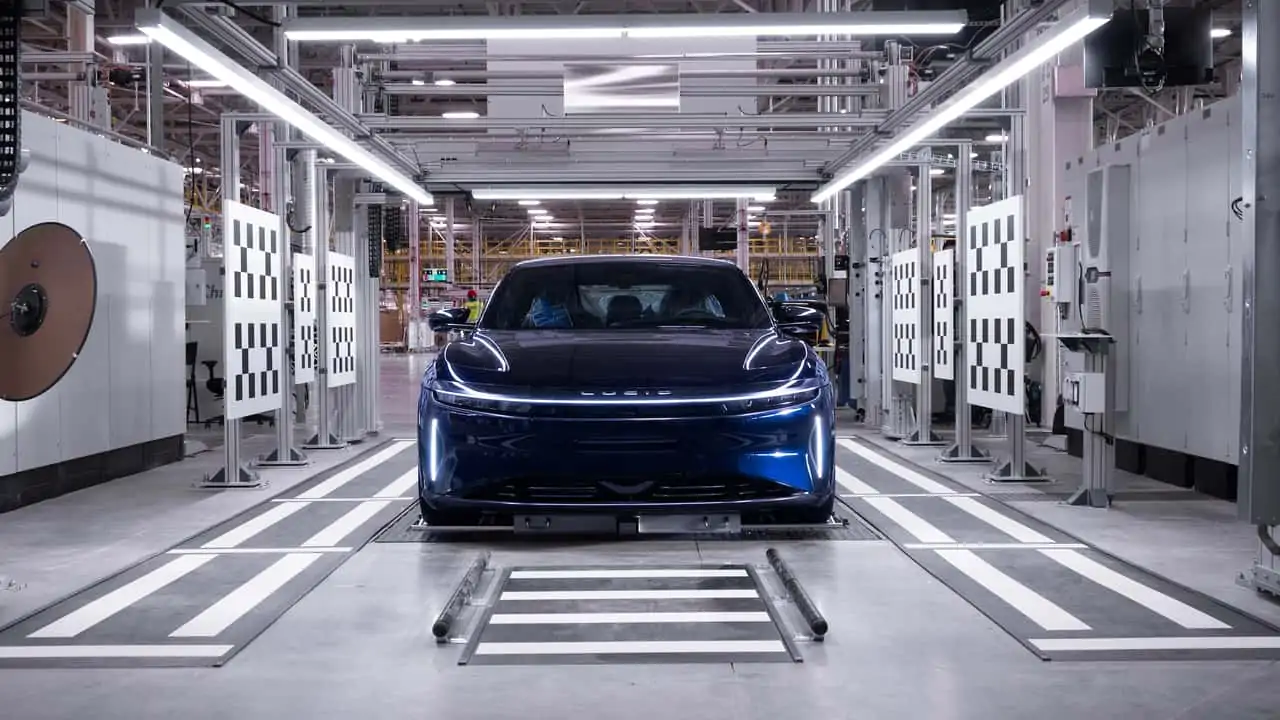In a bid to diversify amidst the global shift away from fossil fuels, Saudi Arabia is navigating challenges in its endeavor to embrace electric vehicle (EV) manufacturing, according to a Reuters report.
The country, with limited experience in automotive production and an undeveloped EV infrastructure, is actively investing in EV initiatives, primarily involving US-based Lucid and its own startup, Ceer.
Lucid has received a substantial investment of $10 billion from Saudi Arabia’s Public Investment Fund (PIF), with the government committing to purchasing up to 100,000 Lucid vehicles. Lucid’s automotive factory, the only one in the kingdom, currently operates by reassembling vehicles initially constructed in Arizona.
Ceer, a startup jointly formed by PIF and Taiwanese tech manufacturer Foxconn, is another player in the Saudi push for EVs. However, the startup faces challenges, as it has yet to establish its factory or launch a car. The first model is expected to be unveiled next year, though insiders suggest a more likely on-road date in 2026.
Analysts highlight Saudi Arabia’s hurdles in developing a thriving EV industry, citing a small local market, high labor costs, and a lack of local suppliers. The nation’s aim to produce 500,000 EVs annually by 2030 faces obstacles, with the sole auto plant, operational since September 2023, having reassembled only 800 cars to date.
The availability of raw materials, particularly lithium for EV batteries, is a crucial factor that could attract original equipment manufacturers (OEMs) to the region. Despite Saudi Arabia’s intentions to produce such metals, no reserves have been announced.
Ceer’s strategy involves sourcing components from BMW, including the battery, according to Tatiana Hristova, an expert at S&P Global Mobility. However, Andy Palmer, former CEO of Aston Martin and COO of Nissan, remains optimistic, emphasizing the significant resources of the PIF. Palmer notes that while challenges exist, financial backing can overcome many obstacles, stating, “Money can solve almost anything, but it’s going to be a lot more than everybody initially thinks.”

